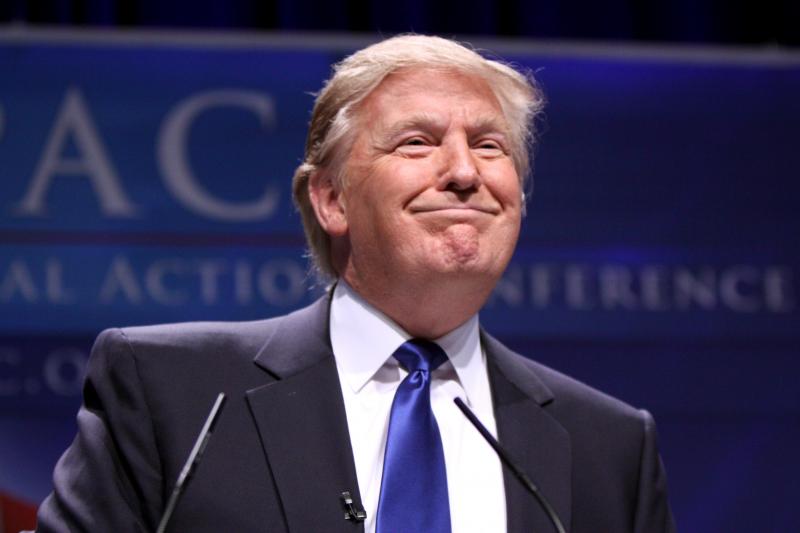
TRUMP on ending the inflation tax: “I’m thinking about it very strongly.”
The Inflation Tax on capital gains may finally be coming to an end. President Trump said today that he is “very strongly” considering a decision to index capital gains to inflation.
As reported by Bloomberg News:
President Donald Trump said he’s considering a capital gains tax break by issuing a regulation that would index gains to inflation.
“There are a lot of people that love it and some people that don’t,” Trump said Thursday in an Oval Office interview with Bloomberg News. “But I’m thinking about it very strongly.”
In response, Americans for Tax Reform president Grover Norquist issued the following statement:
“President Trump turned the economy around with his powerful tax cut signed last November. Now he is poised to supercharge the economy by ending the inflation tax on capital gains, a big help to retired Americans.”
For decades, Americans have been stuck paying capital gains taxes on phantom, inflation-based gains. As noted in a Norquist letter to Treasury Secretary Steven Mnuchin:
Under current law, the capital gains tax fails to account for gains that are based on inflation. This unfairly exposes taxpayers to additional taxation. For example, an investor makes a capital investment of $1,000 in 2000 and sells that investment for $2,000 in 2017 will be taxed for a $1,000 gain at a top capital gains tax rate of 23.8 percent. After adjusting for inflation, the “true gain” is much lower – just $579. (1,000 in 2000 – $1,421 in 2017).
According to a 2013 analysis by the Tax Foundation on individual capital gains taxes, the average effective rate excluding gains from inflation between 1950 and 2012 was 42.5 percent, nearly twice today’s 23.8 percent top capital gains tax rate.
Treasury has the legal authority to index the calculation of capital gains taxes to inflation. Under the precedent set by the Supreme Court in Chevron U.S.A. v. National Resources Defense Council (1984), the ability of Treasury to add an inflation adjustment hinges on whether a new definition of “cost” is plausible. Currently, the capital gains tax is calculated as the difference between the cost of the asset and the sale price of the asset.
While in this context, “cost” is commonly understood to mean historical cost, this definition is not explicitly enshrined in law and Treasury has utilized regulatory discretion in the past. For instance, in 1918, Treasury decided that an asset’s cost was not strictly purchase price but was purchase price less depreciation and depletion taken by the taxpayer prior to sale.
Recent legal precedent proves that there is precedent for the term “cost” to include inflation. For instance, in Verizon v. FCC (2002) the Supreme Court affirmed that the term “cost” was ambiguous and the use of historical cost was not required by law. National Cable & Telecommunications Ass’n v. Brand X Internet Services (2005), affirmed the right of an agency to interpret an ambiguous provision of the law, while in Mayo Foundation for Medical Education & Research v. United States (2011), the Supreme Court affirmed that the Chevron doctrine applies to Treasury regulations.
There is significant support for indexing the calculation of capital gains taxes to inflation in Congress, and from economists:
- Current and former members of Congress, led by Vice President Mike Pence support indexing capital gains taxes to inflation. Pence introduced legislation in 2007 with 88 co-sponsors including now-Office of Management and Budget Director Mick Mulvaney, House Speaker Paul Ryan (R-Wis.), and House Ways and Means Chairman Kevin Brady (R-Texas).
- Similarly, economist Richard Rahn voiced support for indexation in a Washington Times op-ed published on April 9, 2018. Rahn stated that indexation would “spur economic growth and job creation, increase government revenues, and most importantly stop the immoral practice of taxing government-caused inflation.”
Given the clear economic rationale, strong legal precedent, and significant congressional and administration support for indexation, I urge Treasury to swiftly utilize its regulatory authority and index capital gains taxes to inflation.
See also: Over 700 examples of good news arising from the GOP tax cuts

